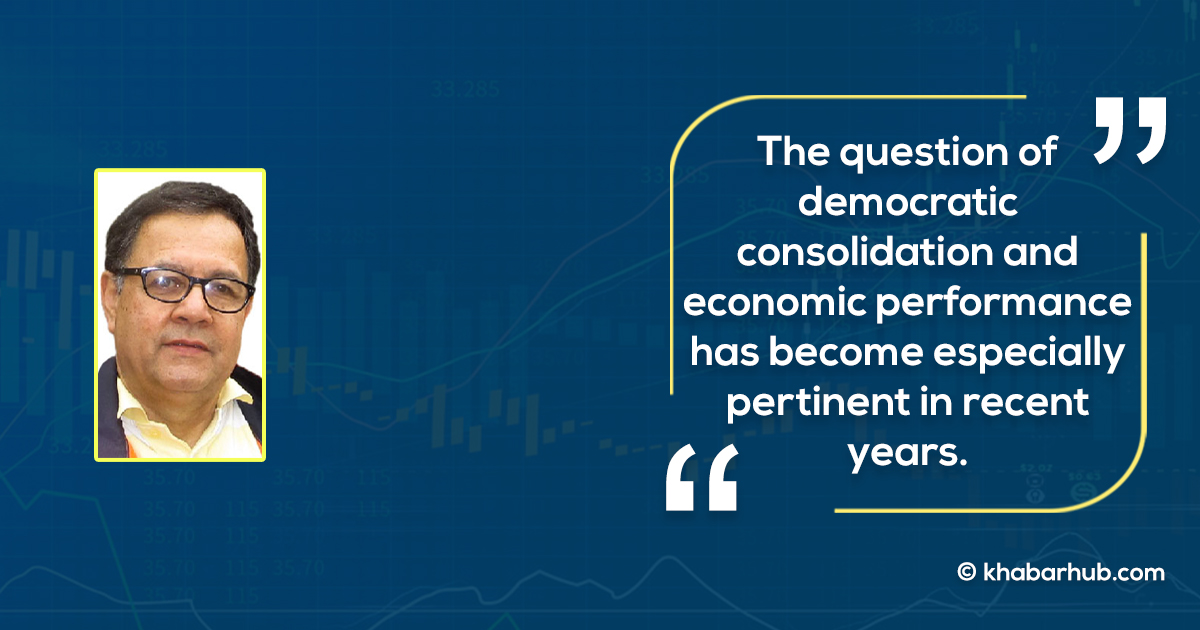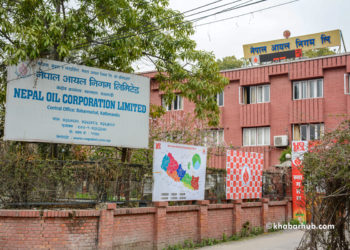All political changes may not necessarily produce the intended results nor provide useful and pragmatic solutions. The changes may not even lead to desired outcome of the implementation process is omitted from consideration.
Scholars, writers, thinkers and politicians have been discussing this question for several hundred years.
Rather, especially trusted and well-entrenched structural reforms may at once require several means involving both modernization and mobilization in order to facilitate the smooth occurrence of democratization by offsetting democratic rule and generating new ideas to help shape both policies and expectations.
It would, however, seem that in established democracies with developed economies, people will employ perspective assessments.
In contrast, countries with less well-established democratic systems and less developed economies will employ retrospective reasoning (Jeffrey Cohen 2004).
Although structural factors, such as economic development, growth and country’s role in the world system can have an unexpected impact on democratic transition, there has been a burst of empirical research on the topic leaning heavily on the political establishment, including the government and political parties representing a wide variety of contexts, after the failure of heterodox politics.
Discussions of democracy, legitimacy is a central issue of maintaining peace, in a nutshell, perceived as an unavoidable governing problem contributes to the efficient governing of society and to ensuring democracy in the governing process.
There is evidence of a new commitment to the egalitarian redistribution of political and economic power that is generally understood as economic liberalization through higher social spending.
Since the end of the Cold War, as a starting point, it has been argued that thoroughgoing transformations in power relations have, in fact, pushed new agenda in the everyday practice of politics that has led to the development of civil society and social movements highlighting the contemporary social and political contexts in order to understand different strategies based on citizens’ choices and political preferences, thus creating formidable public orientation and making it an integral part of the political process.
Various examples demonstrate multiple practices sustaining peace and democratization, which in itself is not homogeneous, but the efficacy of democratic representation, citizenries, economic reform, individual and collective political participation, and, consequently regime legitimacy that stands at the center.
Moreover, it shapes the goals and processes for managing conflicts through dialogue and democracy, which opened space and opportunities to various power relations and governance structures.
A number of political theorists although have argued that economic and social stability, especially creating a specific kind of deliberative democracy based on the epistemic value of democratic decision-making has not yet been achieved.
However, at a broader level, there are situations in which the rule of law simultaneously insisting institutional structures of government that ensure a life of dignity is more likely to develop and stabilize among all segments of the population.
Since the public agenda is more open to citizens’ opinions in a participatory democracy, it is likely that the outcomes would closely reflect the preferences of the people and ultimately would lead to understanding the political development and state institutions and their capacity in making broad changes at multiple levels.
Focusing on the recent experiences of the Third Wave transitions, Rawls and Ackerman (2002) stress the urgency of consensus in constitutional deliberations.
This requires an independent press that adequately performs its democratic functions.
An analysis of ending the Cold War suggests that a higher quality of civility what comes to be seen as play key roles enabling paradigmatic pluralism by providing voice opportunities to various stakeholders and the problem-solving capacity of governance institutions through deliberations.
It would be prudent to consider for a moment linked to national polity whereby they stand as the ultimate source of authority, although there is still a long way to go.
The most noteworthy conclusion is the democracy and market economy can be seen progressive, and even inevitable.
It is simply, however, not true that this has led to stable and acceptable agreements involving greater benefits with a more realistic approach toward the relationship between the people and their representatives based on the interplay dealing with various cultural and socioeconomic contexts that make a difference and help create a democratic political culture that would increase the prospect for democratic consolidation.
Discussions of democracy, legitimacy is a central issue of maintaining peace, in a nutshell, perceived as an unavoidable governing problem contributes to the efficient governing of society and to ensuring democracy in the governing process.
Much contemporary research of what might be called a pluralist society is not without merit as it gives a good overview of politically aware citizens and their subsequent political behavior that continues to thrive.
A close reading of recent democracy movement remarkably shows a high-level of a participatory polity with considerable political activities by the people, albeit, on a limited scale, that may not often address the political issues explicitly; yet, it is identifiable in most cases as it is unique and has a profound political meaning that offers social change under broad social concerns and mores; where the economic shift has no doubt been found harmonious and people have gotten used to living in a free society and have earned much public confidence.
In the case of a new democracy, even the people get confused since the future is uncertain due to the lack of political direction; things keep changing rapidly as they are bound to offer democratic deliberations rather than bureaucratic justifications that broadly foster accessible and inclusive democracy.
It may not be just an accident to be aware of both continuity and change in many situations; as a result, the very process of political and economic changes enters into the debate.
It is conceivable that when the entire society changes, there comes a massive uncertainty.
Yet, it seems, there is generally a high level of respect for civil liberties and social and political rights that may affect the values of political liberalism; alternative viewpoints are essential for the formation of popular will or more importantly, mass political thinking.
Yet, there are some practical implications. One of these hinges on the fact that the notion of social citizenship is understood in terms of the liberal culture of a polity; assuming the prevalence of politically aware citizens to safeguard their socio-economic rights and legitimate equality of opportunity that would promote civil and political liberties by which a democratic government realizes its goals guided by public reasoning, and that enhance competitiveness continue not too promising future.
Nepal’s political evolution since 2015, especially after the 2017 national election, a debate is developing on western values to look at the way in which the country was democratized has actually given ample opportunity to clientelism and corruption.
But these feelings can also spark creativity to adopt a new development strategy and appropriate public sphere that connects five principal dimensions: the rule of law, accountability, responsiveness, freedom and equality/solidarity with varying degrees of openness, sophistication and optimism.
Taken together, most citizens may lack sufficient knowledge or interest or ability or equal opportunity to openly participate in the realm of the public sphere where public opinion is molded.
It may also be the case, however, that majority of the people in a liberal democracy are likely to have strong engagement in a particular area to remain continually in politics.
It would be prudent to consider for a moment linked to national polity whereby they stand as the ultimate source of authority, although there is still a long way to go.
It may also be noted that it would still be premature to expect democratic institutions in a formidable state in practice in the foreseeable future.
The prolonged crisis is not easily resolved. But, a stable and peaceful country alone would be able to avoid conflicts and face a topic of economic and political importance in a linear fashion, attributing a large explanatory power to the ways in which choices are framed and decisions are taken; even more, the way in which they are publicly presented.
Since many different kinds of influence can erode or promote democracy, for one thing, many would insist that a proactive government led by a gentleman of means and grace, one whom the people could trust for fair treatment to all, including the representatives of the institutions to do more than lip-service.
It is quite understandable that the adherents of the fundamental principles of democracy often prefer to focus on the decorum of acceptance and believe that a certain measure of actual performance is called for; however, that must not threaten the importance of individualism in society.
For several decades now, there has been a growing dissatisfaction with those who represent parties and groups while speaking on behalf of special interests and advocating their views and contradicting one another.
It is a popular belief in modern democratic societies that leaders are most able to bear risk right upon taking office to encourage more development rule and pragmatic politics in actual practice in a broader context.
Since the promulgation of the constitution in October 2015, it has become the fashion to hail Nepal as an inspirational example to other societies, yet what Nepal’s transition actually produced majoritarian political philosophy continued to develop, one that is certainly of limited relevance to management and resolution of the conflict in deeply divided society considerations on the conceptualization of social capital and its consequences.
Nepal’s political evolution since 2015, especially after the 2017 national election, a debate is developing on western values to look at the way in which the country was democratized has actually given ample opportunity to clientelism and corruption.
In fact, change has often been seen leading to a host of related problems involving enormous income discrepancies, unemployment and social deviance.
It remains to be seen if the 2017 elections which had put Nepal Communist Party to power mark a new era in Nepalese politics have largely failed to contribute to the emergence of new forms of citizenship which impact the development of the democratization process combined with the embrace of participation, accountability and transparency.
There are various opinions about KP Oli, however, given that he has enjoyed perhaps the most commanding parliamentary majority, and my personal impression is that even his main accomplishment is foreign policy, for instance, two significant foreign policy initiatives: The Transit Treaty with China in March 2016, and New Map that placed Kalapani, Limpyadhura and Lipulek, which were occupied by India for several decades, as Nepal’s sovereign territories, and he has done remarkably little on its political culture that can be assumed to represent the entire Nepalese population suited to the real facts.
Although Oli has declared that he will improve institutional accountability and transparency, and develop a more broad-based policy agenda in which people participate meaningfully in the social, cultural, economic and political affairs that will benefit of all Nepal, but is often faulted for unabashed elitism, including he has not well received.
The fact remains, however, Oli is not a liberal rationalist, but he must respect his own promises, showing himself to be populist fighting corruption and economic equalities — virus, it became a major threat to the stability and prosperity.
There are some emphasis on empowering local authorities or devolving the process of decision-making, but significant dysfunctional elements exist at the operational and implementation level.
More importantly, failing to produce directions for policy thinking and planning that inspires liberal democratization and civic republicanism which is a particularly important factor in the opinion formation process for a free and self-governing constitutional reform continues to be piecemeal.
It is a popular belief in modern democratic societies that leaders are most able to bear risk right upon taking office to encourage more development rule and pragmatic politics in actual practice in a broader context.
The question of democratic consolidation and economic performance has become especially pertinent in recent years.
Nepalese case also shows that democratism has been accused of being leader-centric and this great democratic process appear doing little to challenge the traditional elite hierarchy, as politics lurked in the disguised of professionalism pushed though almost entirely on political control, which relies simultaneously on extensive corruption and absolute gains resulting in the country close to bankruptcy.
The Nepalese political system of governance has become rather messy of complicated political arrangement, in pursuing legitimate political compromises, promoting civic engagement and democratic education based on a liberal nationalistic version of multiculturalism that would seem to bring to stability in the country have continuously faded.
Yet a struggle for a legitimate political system in Nepal continues.
Thanks to aggressive liberalization, Nepal has achieved stunning political progress since 1990 but this might be seen as widening the scope of plurality and diversity, but at the same time, the idea of federalism lurk various, especially full-fledge federalism are seen to rumble on, and shows that Nepal’s political system is best considered ‘permissive federalism’ along with clear lines of the hierarchy will depend greatly upon their actions and success to engage more proactively.
The pluralistic perspective assumes that public interest emerges due to competing interest groups.
The political route of pluralism emphasizes the importance of community values and public participation in the political process.
Despite the 2015 constitution committed to modernizing government including local government, that nostalgia for the state-centered conception of power for federal politicians and public servants is conceived as how local government be organized and assertive in providing efficient service to the geographically differently distributed population.
Much needs to be done in Nepal to combat the core problems of democracy, namely, democratic and egalitarian discourse, and collectivist value patterns.
There are some emphasis on empowering local authorities or devolving the process of decision-making, but significant dysfunctional elements exist at the operational and implementation level.
The argument is that increasing democratization and globalization have created a new type of organized politics and decentralized polity evolved over time that has helped increase efficiency, reduce corruption and build civic engagement.
More broadly, the greater emphasis on citizenship, representation and decision making are solely concerned with accountable or representative polity which is needed for delivering peace and prosperity.
The past two decades were momentous for Nepal in many ways: the switch from monarchy to a liberal, free-market, federal and secular republic, was so sudden and completely unexpected to the people who grew up and lived within it have come to characterize Nepali democracy.
The question of participatory development and empowerment has become central to contemporary Nepali democratic discourse is nevertheless yet to be empirically observed.
Much needs to be done in Nepal to combat the core problems of democracy, namely, democratic and egalitarian discourse, and collectivist value patterns.
Many writers claim that the successive Nepalese government has failed and nurtured a major public outcry for the reform of the political system.
Views expressed in this article are the author’s own and do not necessarily reflect the stance of Khabarhub.









Comment